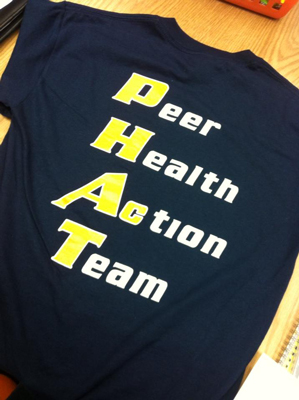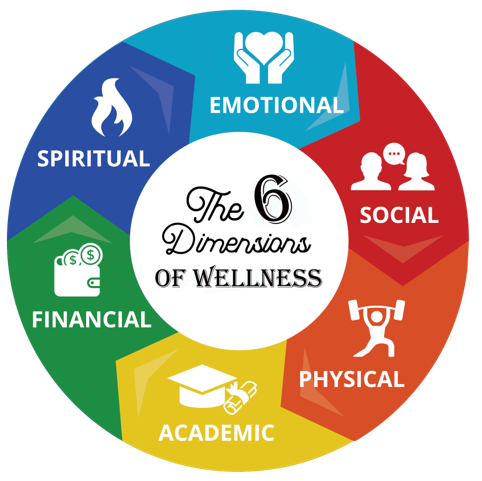
Benefits of Being a Peer Health Educator
Becoming a PHAcT member provides an opportunity for students to have a unique and powerful relationship with their peers, learn about the field of health promotion, and help create a healthy environment throughout campus. Other benefits include:
- Earn a national certification as a Peer Health Educator
- Build your resume for college transfer, nursing, or other allied health programs
- Gain leadership, outreach and event planning skills
- Meet, help, and serve other students
- Learn about a variety of health topics
Become a Certified Peer Health Educator
Students of all majors and interests who are currently enrolled in OCC are welcome to become peer health educators through the PHAcT program. Peer health educators commit to a full semester of service. Training to be a peer health educator is completed through preparation in a 2-unit course (Public Health A160: Peer Health Education Level 1). Topics covered include strategies for behavior change, referrals, programming, presentation and group success. Students will be certified as peer educators through the BACCHUS national certification exam at the end of the course.
To become a Peer Health Educator, please sign up for Public Health A160: Peer Health Education Level 1 (HLED/PUBH A160). May be taken for grades or on a pass/no-pass basis. Lecture, Lab. For more information, contact Diane Brown, dbrown226@occ.cccd.edu
Pink Power Day
OCC students, faculty, and staff can learn about breast cancer during Pink Power Day, a breast health awareness campaign developed by the Student Health Center and Peer Health Action Team in observance of Breast Cancer Awareness Month (October). Pink Power Day aims to increase early detection of breast cancer. Breast cancer is the second most common cancer in American women – 1 in 8 women will be diagnosed with breast cancer during their lifetime. While breast cancer diagnosis is mostly found in women who are 50 years of age or older, young women can and do get breast cancer. About 11% of all new cases of breast cancer are found in women younger than 45 years old. Because there are few effective breast cancer screening tools for women younger than 45, and the signs of breast cancer are not the same for all women, the Student Health Center is promoting breast self-awareness. All women are encouraged to know how their breasts normally look and feel, and to get checked immediately if any changes are noticed.
Pink Power Day activities include the Bra Pong Game, Photo Booth Pledge, and Fighter/Survivor/Taken Wall.
Discuss any questions or concerns about your breast health with the Student Health Center by calling (714) 714-7705.
Wellness Central
Every year, college students are affected by a multitude of health issues. Wellness Central, a new online health and wellness tool with content tailored to the needs of California Community College students, is now available on Canvas.
Containing resources about emotional, social, physical, academic, financial, and spiritual health and wellness topics, the tool has been tested with current students who described it as "comprehensive," user-friendly, and "something that's been sorely lacking for CCC students."
Wellness Central was created by Health Services Association - California Community Colleges (HSACCC), the California Virtual Campus - Online Education Initiative (CVC-OEI), the Foundation for California Community Colleges, and the California Community College Mental Health & Wellness Association (MHWA). Promoted by the California Community Colleges Chancellor's Office, Wellness Central is beginning its pilot year.
Explore Wellness Central on Canvas now.



